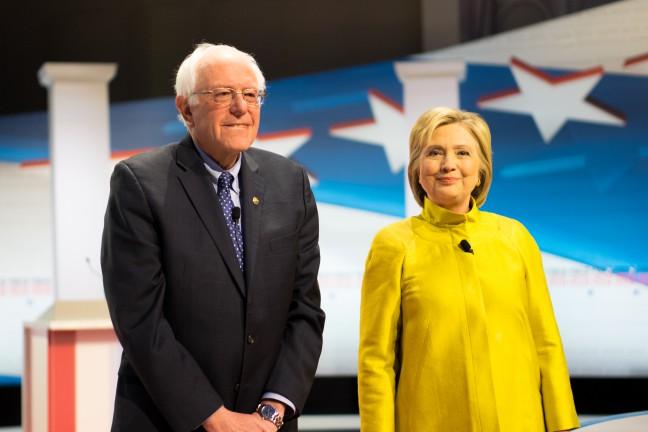With the likes of Donald Trump, U.S. Sen. Bernie Sanders, I-Vermont, former Secretary of State Hillary Clinton, U.S. Sen. Marco Rubio, R-Florida and U.S. Sen. Ted Cruz, R-Texas, it’s safe to say the 2016 presidential election race is not too far off from a presidential edition of American Idol.
Through heated debates and big personalities, this year’s presidential election cycle and the never-ending media frenzy surrounding it has sparked interest in politics like never before. But it is important to remember that all those running are hoping to assume the most important job in the U.S., if not the world.
Information about the Republican and Democratic candidates is abundant and easily accessible. Ninety-one percent of Americans hearing about the election through some source, ranging from television to social media to print.
But despite this abundance of information about the two major parties’ candidates, other parties are forgotten. They do not hold nationally televised debates and are rarely in the news or on social media. Most Americans would have a hard time simply naming two or three truly independent candidates running for president. So in order to be a viable candidate, they must choose a side.
Unsurprisingly, many Americans, too, are doing just that. The number of people that consistently align with the Republican and Democratic parties has doubled, and many also see the opposing party as a serious threat to the nation’s well-being.
Essentially, the Republican and Democratic domination over U.S. politics has created an us vs. them mentality where people are more concerned with their side winning than actually getting things done. People can root for their favorite candidate in the debate on TV and show their support at rallies. Each side even has their own color scheme and mascot.
Elections today are looking more and more like Sunday Night Football, and it is killing our ability to reason with each other or accept differing points of view.
A study at the University of Kansas found that 38 percent of people who hold consistently partisan views stated their party should use any tactic necessary to win elections and debates, including voter suppression, lying, personal attacks on opponents and not allowing the other party to speak.
If you have paid any attention to the widely popular debates, you can see multiple candidates using these tactics. This may be why politicians have such dreadful approval ratings. A recent study found 19 percent of Americans trust politicians always or most of the time, and 55 percent believe that ordinary citizens would do a better job solving national problems.
Based on recent approval ratings for the current candidates, people remain skeptical that the leading contenders would make good presidents.
How do we fix this mess?
Changing the current political party system is an overwhelming task, and the size and pocketbook of each party is monumental compared to that of the independents.
To start, Americans should look at their candidates as interviewees for a potential job. In a normal interview process, employers do not predetermine the winner or exclude others because they align with some group. Therefore, people must take the time to research each candidate without predetermining their decision based on the party’s usual platform. This is hard to do because many people simply vote with their party, something that requires very little time and effort.
Most importantly, it is necessary for each person to have the ability to consume information from respected sources. With advances in technology, it is easier than ever before for anyone to write things for everyone to see.
When conducting proper research, it would seem insane to trust a candidate like Trump, a television personality who has never held a position in politics, with the most important job in our country.
When in office, our first president, George Washington, warned about a day when political parties would hold too much power:
“However [political parties] may now and then answer popular ends, they are likely in the course of time and things, to become potent engines, by which cunning, ambitious, and unprincipled men will be enabled to subvert the power of the people and to usurp for themselves the reins of government, destroying afterwards the very engines which have lifted them to unjust dominion.”
That prediction is becoming reality in modern day politics, and it is time we move forward by looking past political parties and more into the qualification of the person.
Matthew Cejka ([email protected]) is a sophomore majoring in journalism and economics.














